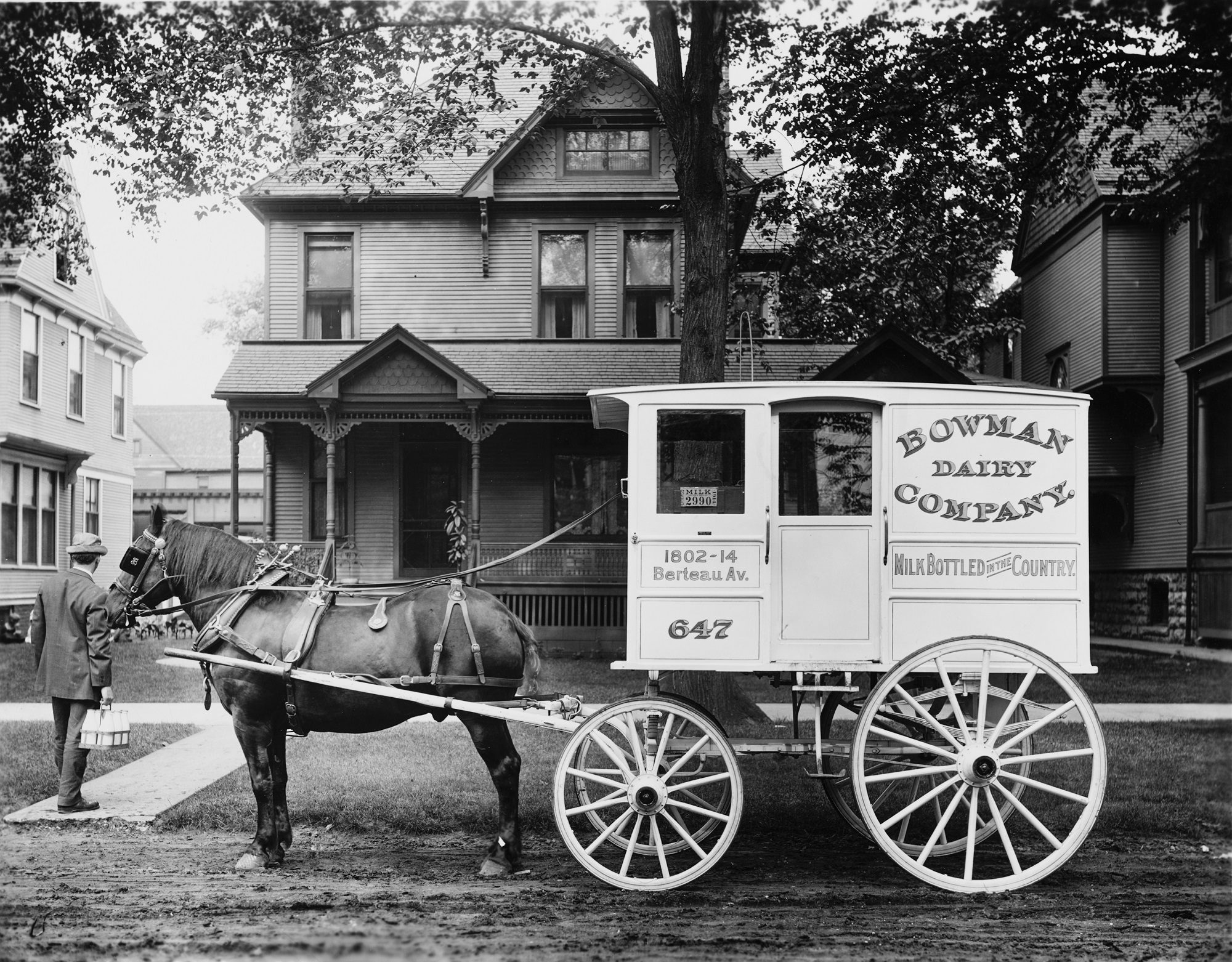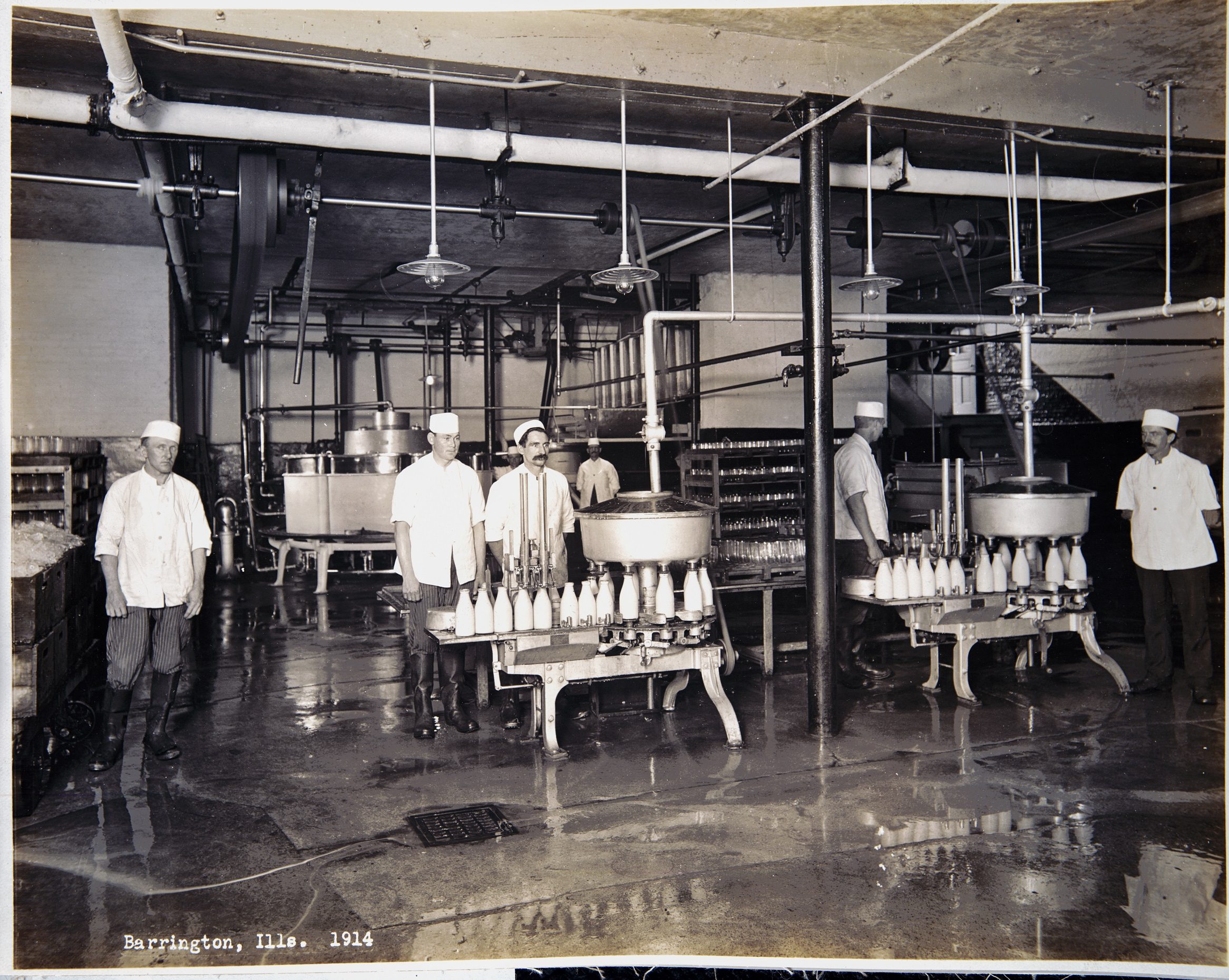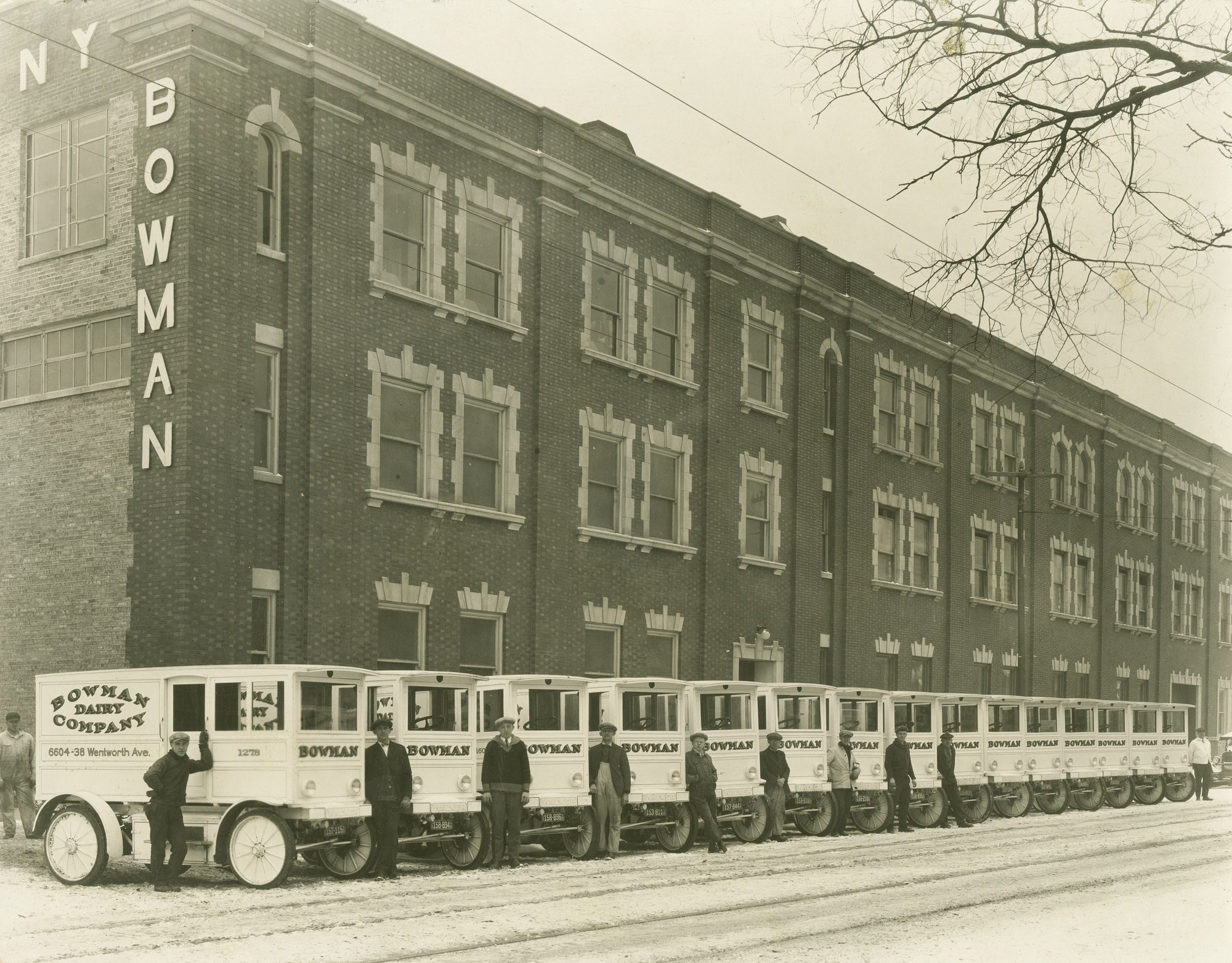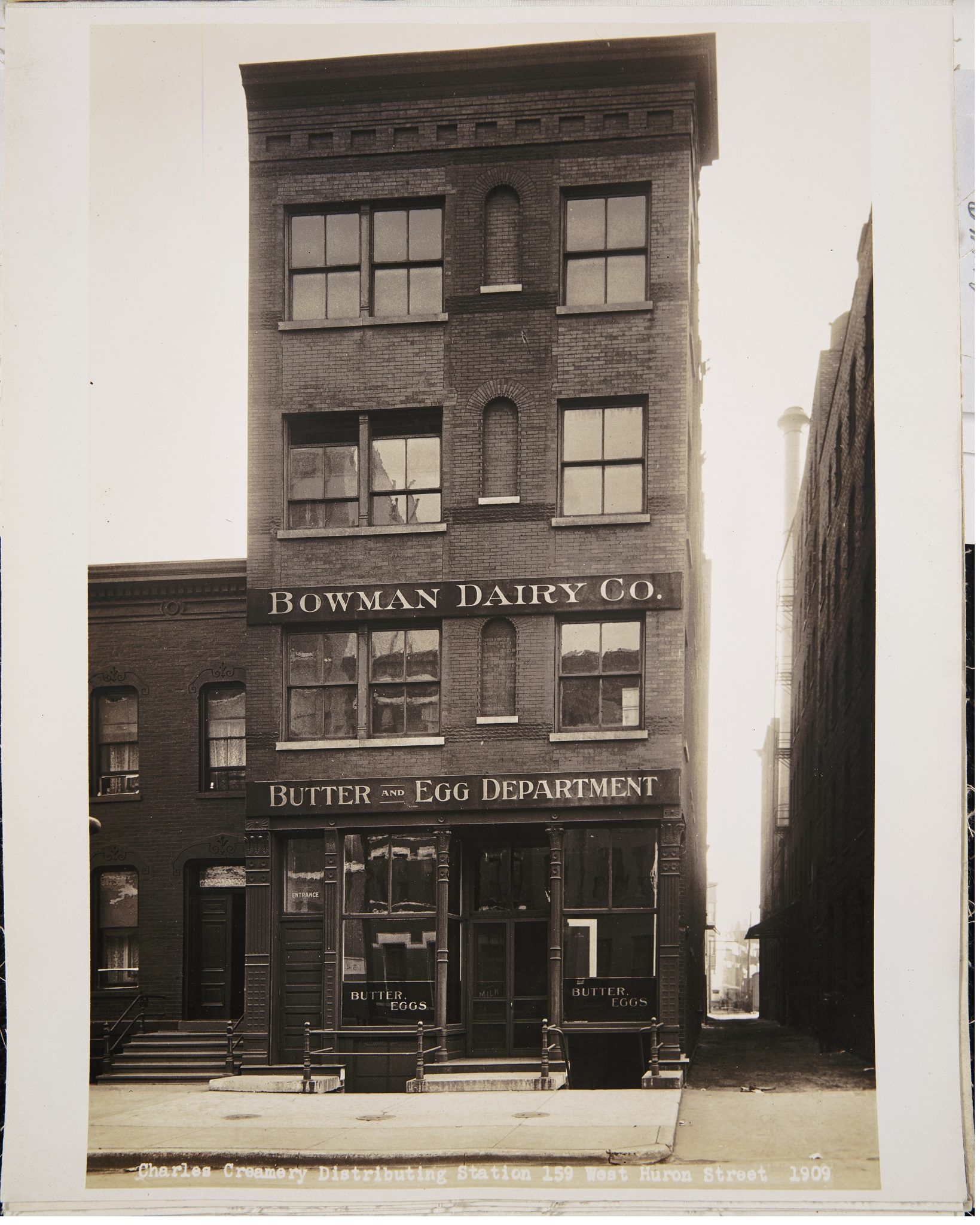January 11 is marked on the calendar as National Milk Day, commemorating the day the first glass bottled milk deliveries began en masse in the US, starting with the state of New York in 1878. And while Chicago’s strongest bovine association has been to the Union Stock Yard, the dairy industry was also a lucrative entity across the city that employed thousands.

Milkman making a delivery for the Bowman Dairy Company using a horse-drawn milk delivery wagon on a residential street, Chicago, 1914. CHM, ICHi-067268
The kings of the Chicago dairy industry were undoubtedly the operators behind the Bowman Dairy Company, who were the largest distributors of milk in the city through the first half of the twentieth century. The company began in 1874 under Johnston R. Bowman in St. Louis. By 1891, company leadership consolidated by selling the St. Louis operation for $110,000, which, adjusted for inflation, is just over $3.4 million in 2022. From that point on, all operations would be headquartered in Chicago, after the acquisition of a local operator, the Jersey Milk Company. A further partnership (and eventual buyout in 1898) with a local creamery further cemented Bowman’s presence in the city, as they became known for delivering freshly bottled milk across more than 30 commercial routes in the city, quickly developing a strong reputation amongst the city’s rapidly growing population.

Workers bottling milk at the Bowman Dairy Company, Barrington, Illinois, 1914. CHM, ICHi-068768
One of the many factors that brought the company success was its pioneering efforts in delivering pasteurized milk and cream by 1899. This was achieved by a partnership with farms in the Chicago suburbs. Their milk and cream would be delivered via rapid train in the morning to the bottling and distribution centers that Bowman operated across the city, where workers and deliverymen were ready for their daily routes. Chicago passed its first pasteurization law in 1908, making Bowman’s practices for milk delivery the industry standard.

A line of Bowman Dairy trucks and drivers outside of a Bowman Dairy building, Chicago, 1915. CHM, ICHi-020259
By 1920, the company was strong enough to acquire another significant local competitor, the Kee & Chapel Dairy Company, which ultimately landed Bowman with expanded operations across the city and nearly 300 commercial routes for milk distribution. It would then expand into the ice cream market by 1938 and would invest heavily into the popularity of the frozen treat, acquiring competitors in Chicago and outside of Illinois in Wisconsin and Ohio. By the middle of the century, along with their profitable dairy operation, the Bowmans officially expanded into the poultry business with the purchase of a poultry farm, thus inaugurating the aptly named “Bowman Dairy Company Egg Division” in 1947.

Charles Creamery Distributing Station for the Bowman Dairy Company, Butter and Egg Department, 159 W. Huron St., Chicago, 1909. Bowman initially partnered with a poultry farm for their venture into eggs and bought the farm when their attempt proved successful. CHM, ICHi-068763
The decline of the Bowman Dairy Company was gradual, beginning with antitrust lawsuits claiming that the company’s size was making it impossible to compete in the region. Changing consumer habits also greatly impacted the company’s efforts, with milk deliveries dramatically decreasing in popularity as dairy products continued to be found in greater supply across supermarkets and grocers. This was compounded by difficult negotiations with the union that represented milk deliverymen, who refused to take decreases in pay and delivery routes. Ultimately, the company and all its holdings would be sold to the dairy conglomerate Dean Foods in 1966. Up until its sale, Bowman remained family owned and operated, overseeing what the company called the “Bowman City,” a network of bottling, production, and distribution centers that brought milk to thousands of consumers across Illinois and the greater Midwest.
Additional Resources
- See more images of the Bowman Company’s operation across Illinois
- Access the Bowman Dairy Company records (1870–1972) at the Abakanowicz Research Center, which is free to visit
See what people are saying!